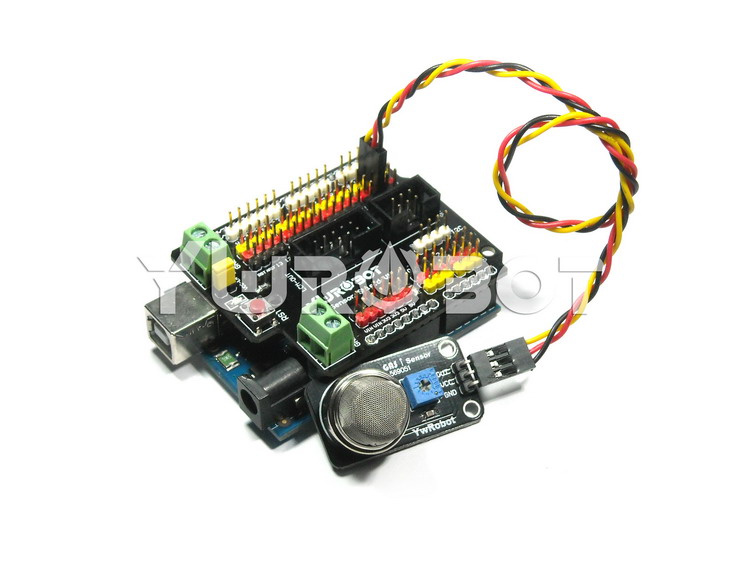(SKU:SEN030403)MQ-5液化气传感器
来自YwRobot Studio Wiki
产品参数
- 名称:电子积木 MQ-5液化气传感器
- 尺寸:38*21mm
- 电压:5V
- 输出:模拟量电压信号(幅度可调)
- 检测气体:液化气、煤制气、甲烷等可燃性气体
使用教程
样例代码
void setup(){
Serial.begin(9600);
}
void loop(){
Serial.println(analogRead(A0));
delay(1000);
}
实验结果:串口可以观察到传感器读值,并打印到屏幕上,数据打印时间间隔1秒。
更多
[YWRobot产品资料下载]

